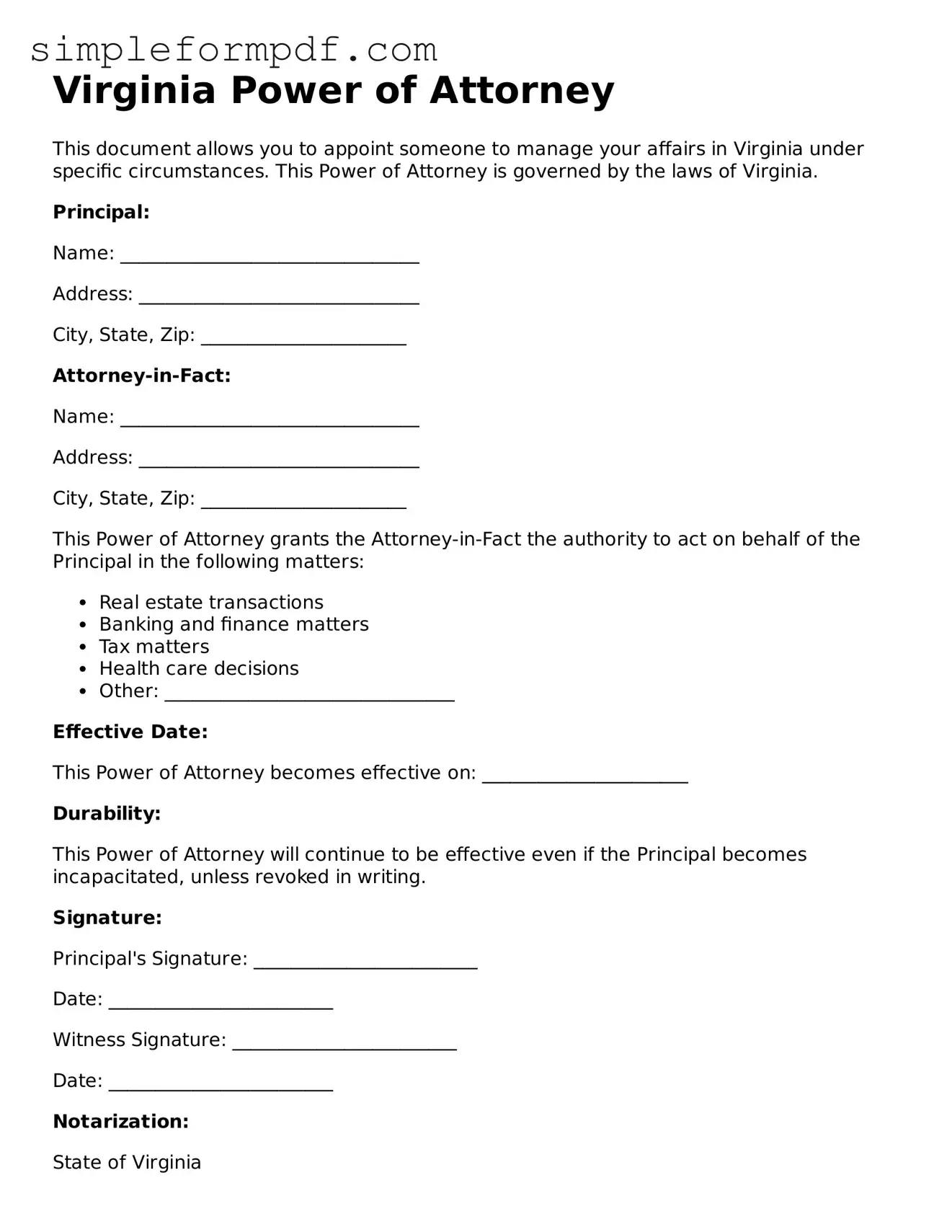Free Power of Attorney Form for the State of Virginia
The Virginia Power of Attorney form is a legal document that allows an individual, known as the principal, to designate another person, called the agent, to make decisions on their behalf. This form can cover a variety of financial and health-related matters, providing flexibility and support when needed. To ensure proper completion, consider filling out the form by clicking the button below.
Launch Editor

Free Power of Attorney Form for the State of Virginia
Launch Editor
Need instant form completion?
Finish Power of Attorney online in just a few minutes.
Launch Editor
or
Download PDF
